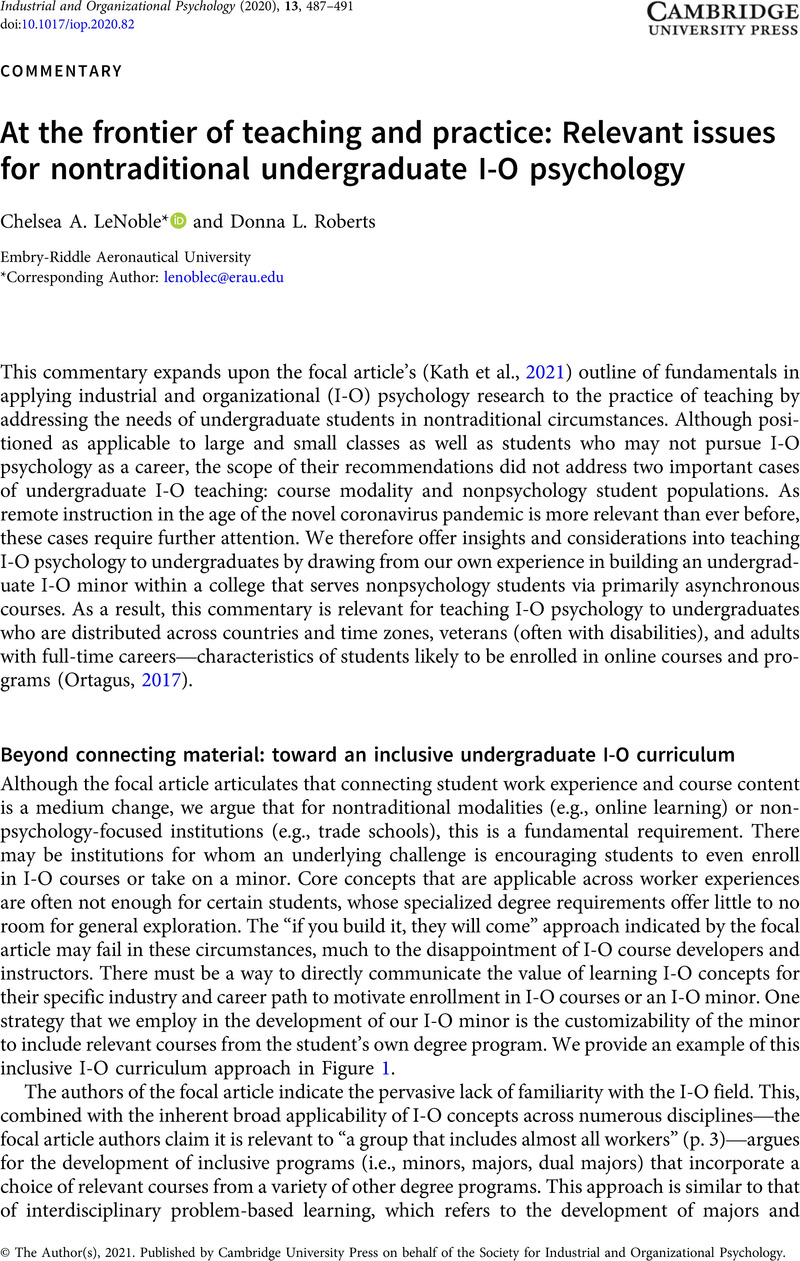Crossref Citations
This article has been cited by the following publications. This list is generated based on data provided by Crossref.
Logan, Kristi
Reynolds Kueny, Clair
LeNoble, Chelsea
Sanchez, Diana
and
Whinghter, Jeanie
2022.
What does online I-O education really need? Perspectives of online program affiliates.
Industrial and Organizational Psychology,
Vol. 15,
Issue. 2,
p.
181.
Raut, Sachin Kumar
Alon, Ilan
Rana, Sudhir
and
Kathuria, Sakshi
2024.
Knowledge management and career readiness: a review and synthesis.
Journal of Knowledge Management,
Vol. 28,
Issue. 7,
p.
1821.
2024.
The Multilevel Community Engagement Model.
p.
221.



